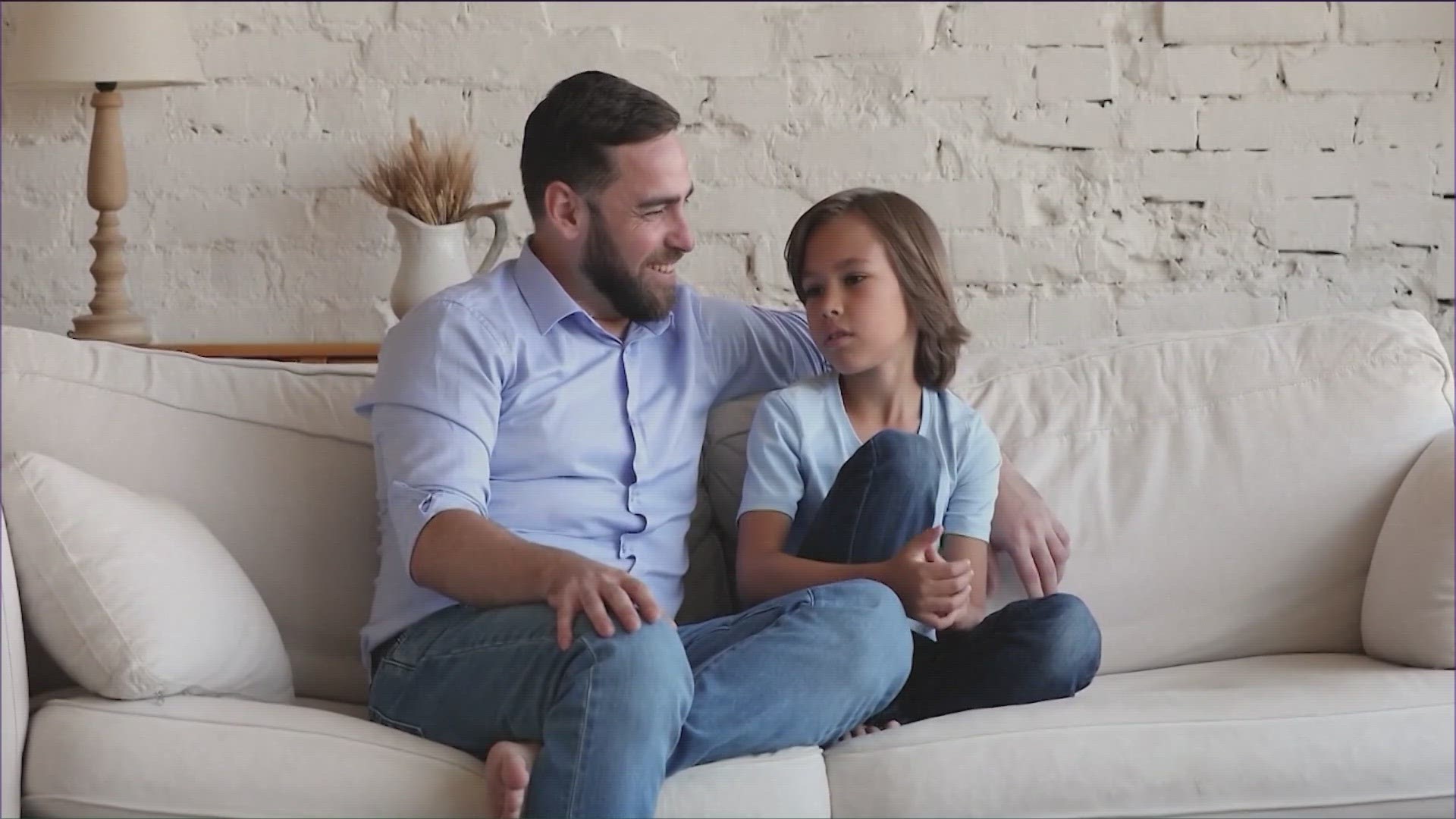AUSTIN, Texas — With the back-to-school season right around the corner, it's normal and understandable for children to experience anxiety about going back to school after a long summer break. Some may also feel nervous about starting school for the first time.
Experts say there are steps parents can take to help ease the transition back to school by recognizing the symptoms of stress and anxiety and implementing some creative strategies.
Dr. Matthew Lederman – a board-certified internal medicine physician, expert in empathetic communication and NVC practitioner – recommends nonviolent communication (NVC) as a tool that can help ease the transition. Nonviolent communication can foster a stronger and more meaningful connection between parents and children because it empowers parents and children to express emotions, needs and concerns more effectively.
"The connection happens in the heart, and we want to not only be in our hearts, but also be in the hearts with the children and help them get out of their heads and connect first to their anxiety," Lederman said. "So we can say, 'Hey, I'm here and you're feeling really anxious,' or, 'I'm sensing you're feeling really anxious, and I don't want you to have to hold that alone.'"
The seven steps to NVC include:
- Present a safe space: To create a safe space for your child, find a quiet place in the house where you can talk without distractions. Let your child know that they can discuss any concerns or feelings in this space. Avoid distractions from phones or television, or other members of the family. Focus on listening and being present with your child instead of thinking about what you need to do to fix the situation.
- Do not interrupt: When listening to a child's concerns, be sure not to interrupt or judge. Show empathy by nodding, maintaining eye contact and using verbal cues like "I see," or "That sounds tough." This will help your child feel heard and validated.
- Validation: You can help the other person feel understood and less alone by validating their feelings. For example, you might say, "It sounds like you're feeling anxious about going back to school and worried about fitting in. Is that right?"
- Encourage sharing: Encourage your child to share their concerns and fears about returning to school by asking questions that require more than a yes or no response. For example, you might ask, "What specifically worries you about going back to school?" Most suffering stems not from unpleasant feelings but from holding unpleasant feelings alone.
- Find solutions, together: Brainstorm with your child about possible solutions to their problem. Listen to what they have to say, and let them know that you value their input and trust their ability to care for their own needs. This will empower them to solve problems on their own in the future.
- Try a mantra: Mantras are positive affirmations or phrases that can be repeated to a child when he or she is feeling anxious. Examples include "I am capable and strong," or "I can handle anything that comes my way." This helps regulate the nervous system and create self-connection that stimulates a sense of safety.
- Encourage self-care: Help your child develop self-care routines to manage stress and anxiety. Encourage them to practice deep breathing exercises, mindfulness, physical exercise or engaging in hobbies they enjoy. Taking care of their well-being can help them feel more resilient and grounded.
"I think that, to me, the most important thing is I work with a lot of parents and teach the goal is to be with your child, not to fix your child. A lot of times we think it's our job to fix, and it's really about being with them and empowering them to lead the way. But you're there with them so they're not alone," Lederman said.
Lederman said feelings are not a problem or bad – they're just feelings. For kids, letting parents, teachers or caregivers know they have needs that are not being met is crucial.
Lederman also said suffering happens when you have to hold your unpleasant feelings alone, so let children know they're not alone and they can be with you during their time of pain.

